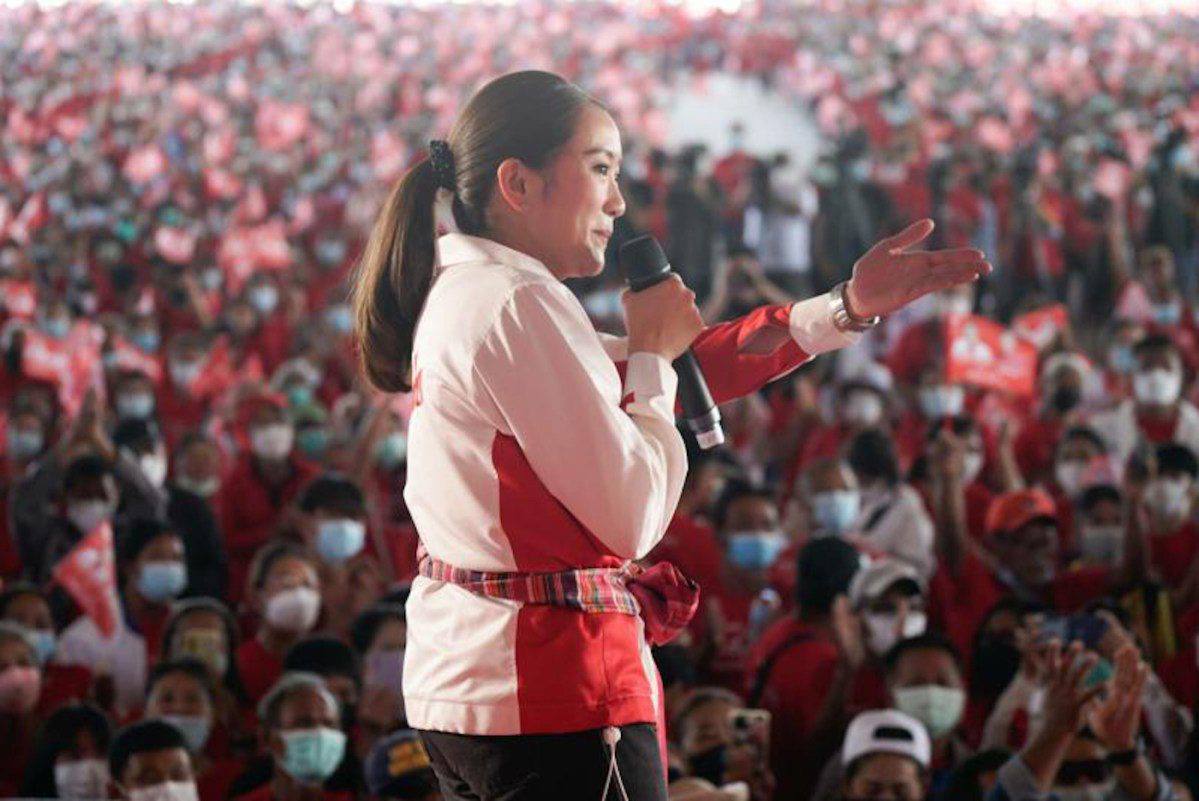Global Courant 2023-05-01 13:14:53
The ghost of past elections hangs uneasily over Thailand’s upcoming electoral battle, which is being fought on a battlefield of great promises.
If the military proxy parties are pushed out of power, will this finally put the country back on a course of stable electoral democracy that was undermined by the military coups of 2006 and 2014? Or does it open a new iteration of the wongchon ubat, the evil cycle in which Thailand oscillates between popularly elected governments and military dictatorships?
In 2019, many voters formerly loyal to Peua Thai, the party of the polarizing Shinawatra clan, suppressed their inner feelings – and, wanting to end the ‘color wars’between their so-called “red shirt” supporters and “yellow shirt” conservatives, voted with their heads.
They were attracted by what they saw as stability in the form of the military proxy party Palang Pracharat and its prime ministerial candidate, coup leader Prayut Chan-ocha, as well as the benefits promised by his party.
In 2023, divisive politics seems to be less prominent – at least on the surface. With the return of the lèse-majeste law and the prohibit from talking about monarchical reforms, the economy dominates election campaigns.
Given the difficult years of the 2020-2022 downturn caused by the Covid-19 pandemic, the deep collective memory of Peua Thai as the party of economic growth and wealth redistribution puts it in a good position to return to government .
Thailand’s Prime Minister Prayut Chan-ocha (R) dances with a performer at an inauguration ceremony at Khon Kaen Provincial Railway Station in an archive photo. Photo: Handout AFP/Royal Thai Government
Peua Thai’s electoral prospects are further bolstered by disarray on the conservative side. Prayut is a tired lame prime minister, cantankerous and curt with the media and unwilling to debate. Worst of all, he has a horizon of only two years if he is re-elected over a Court ruling 2022 about the prime minister’s terms.
After a seemingly divide within the government, Prayut has formed a new party vehicle for himself, leaving Palang Pracharat to former partner and army faction comrade Prawit Wongsuwonwho is now a contender for the premiership.
But there are many reasons why it is far too early to hand the election over to Peua Thai, despite the rhetoric surrounding an election “landslide”. These factors make it difficult to predict who will be in government and, more importantly, who will be the next Thai prime minister.
The election system has changed since the 2019 election, with a return to a two-vote system of separate votes for local constituencies and party-list candidates. This is expected to favor larger parties and disadvantage smaller ones, particularly the Liberal Move Forward – the successor to the breakout party from the 2019 election, Future Forward, which was controversially banned in 2020.
Thai opinion polls are often unreliable and apparent support for Peua Thai may be weaker than they suggest.
The unelected senate of 250 members, who under the 2017 constitution have their last chance to determine who becomes prime minister in the 750-seat bicameral parliament, is a key variable.
While their intentions are largely opaque, some have indicated that they will respect the voice of the people. More importantly, the divisions among the conservatives may mean that the senators are not voting as a single bloc.
There is the tricky issue of coalitions. None of the Peua Thai leaders has ruled out a coalition with Palang Prachrat, meaning the clear distinction between the so-called “democratic” and “authoritarian” sides of Thai politics in place after the 2019 elections may dissolve.
The Palang Pracharat of Prawit Wongsuwan is in line with military interests. Image: Twitter
This more fluid mix means many other coalition permutations and combinations become possible. Choosing a prime minister may mean haggling as these alignments grow stronger. Smaller parties, such as Bhumjai Thai, could become kingmakers.
Many parties have more than one prime ministerial candidate at this point in the campaign. While Paethongtarn Shinawatra, the daughter of former Prime Minister Thaksin Shinawatra, is a Peua Thai candidate with dynastic looks, she is flanked by two older and more experienced candidates, so she is not sure.
There are other known unknowns, such as the role of the palace and the possibility of last-minute “major surprises” such as the 2019 announcement and subsequent cancellation of King Vajiralongkorn’s elder sister, Princess Ubol Ratana, as prime minister-designate.
If Peua Thai returns, the seeds for the next coup, military or judicial, may already have been sown.
Peua Thai’s populist pledges – such as one 10,000 baht cash bonus (US$300) in a digital wallet for all adults – could be the pretext for intervention, as in 2014 when former Prime Minister Yingluck Shinawatra’s ill-conceived plan to buy rice from farmers well above market price was portrayed as reckless economic irresponsibility .
The possibility of Thaksin return to Thailand could once again set conservatives on fire and provoke a return to the streets. Deep social and regional fault lines remain in the political body, leaving Thai politics still insecure.
Greg Raymond is a Senior Lecturer at Coral Bell School of Asia Pacific Affairs, Australian National University.
This article was originally published by East Asia Forum and has been republished under a Creative Commons license.
Similar:
Loading…








